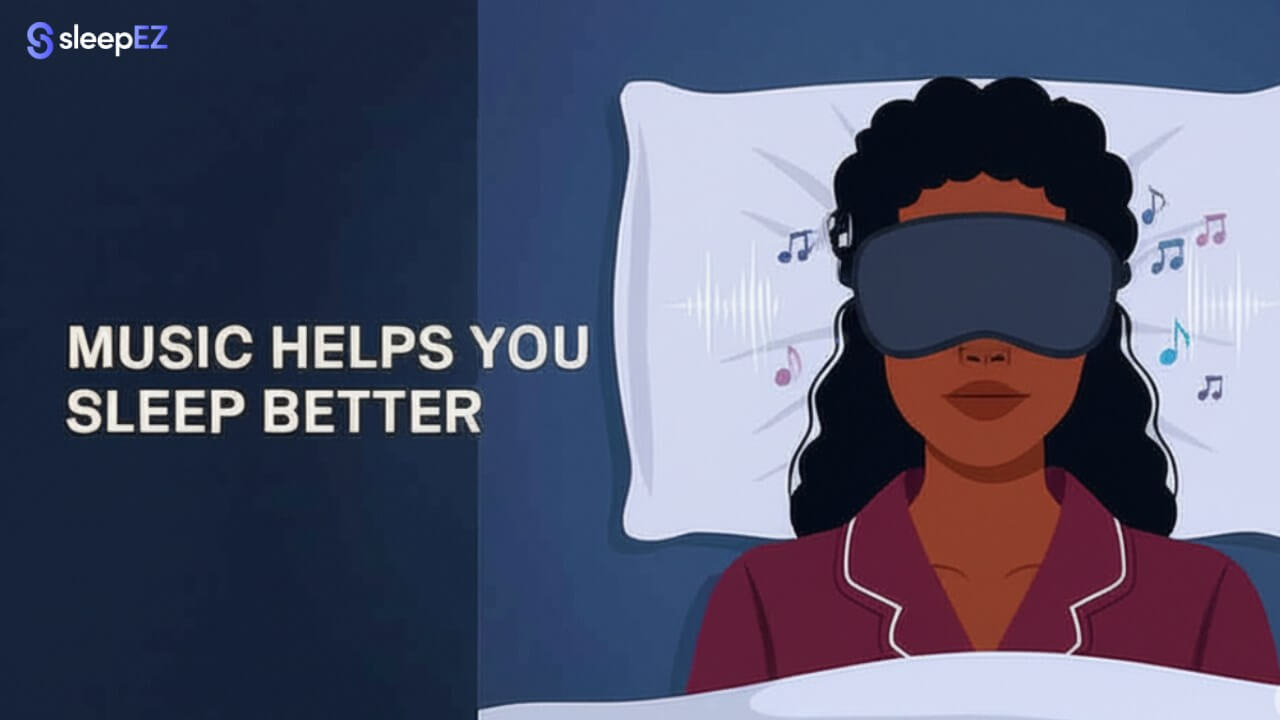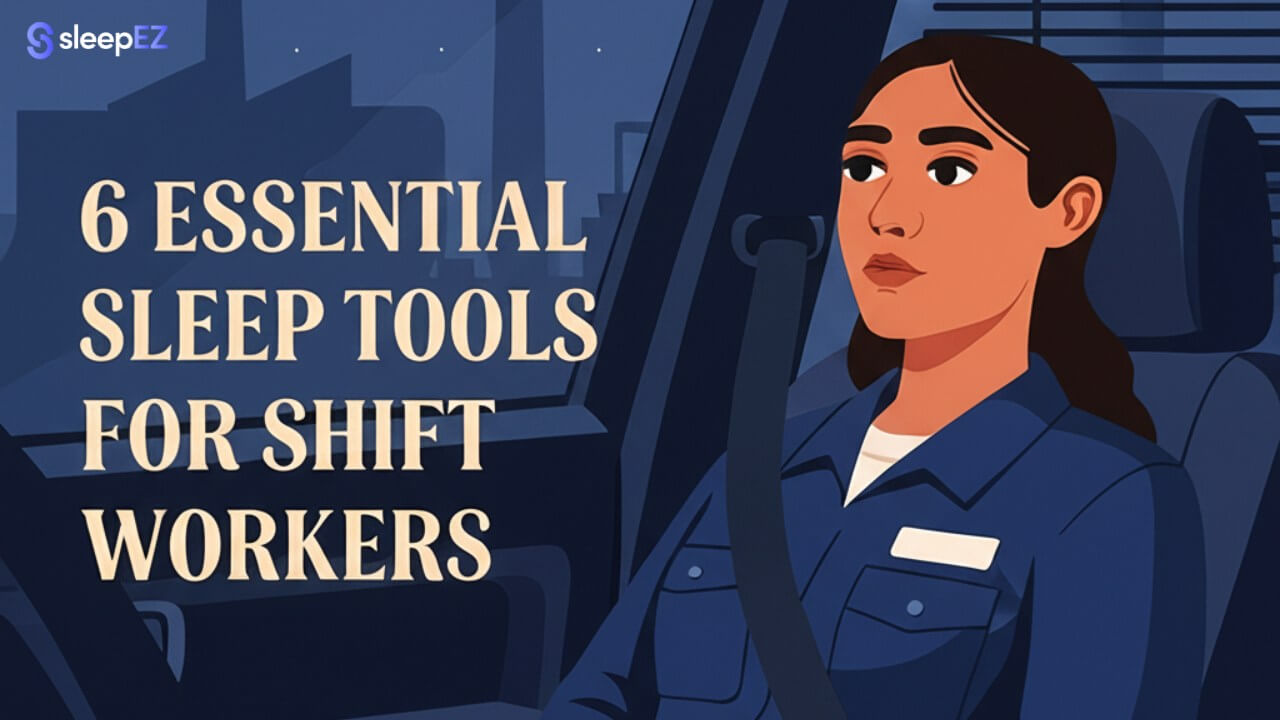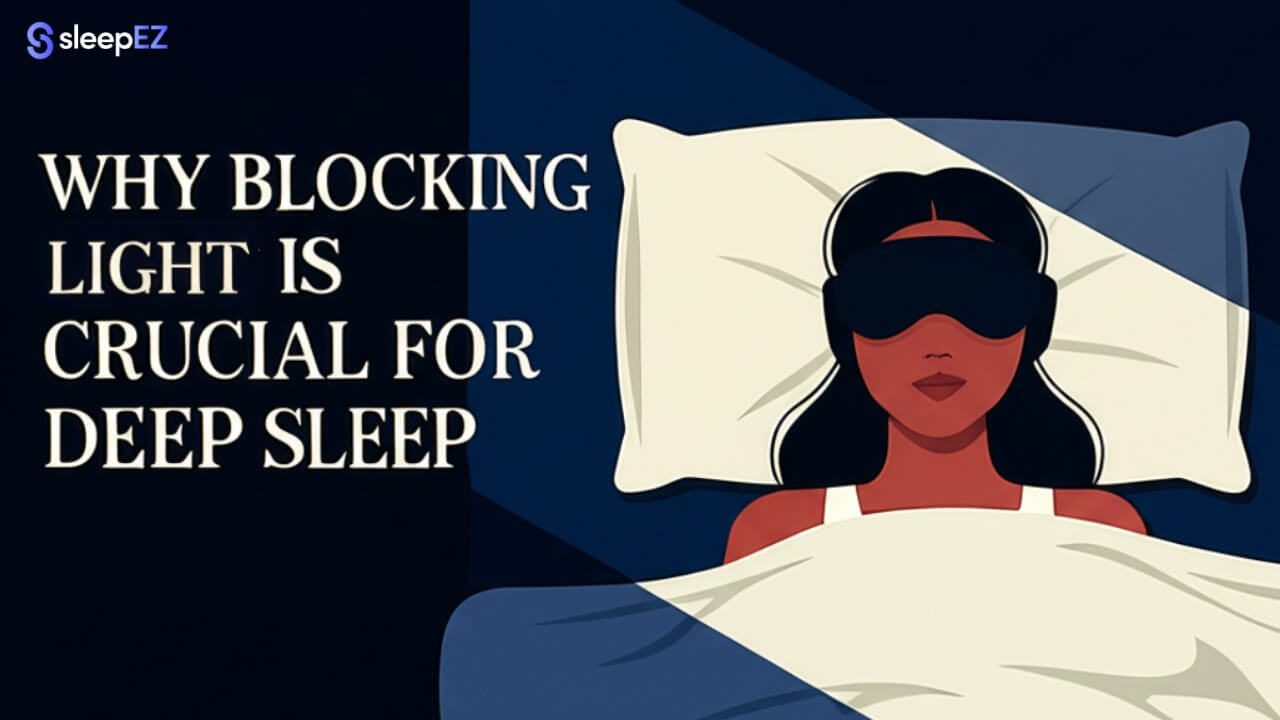Many of us love drifting off to our favorite tunes or calming sounds. But does music really help us fall asleep faster? Or is it just a nice routine that makes us feel good?
Good news, science backs up what many sleepers already know. Music can help you sleep better, but not all sounds work the same way.
How Music Affects the Brain at Bedtime
When you listen to relaxing music before bed, your body responds. Your heart rate slows down. Stress hormones like cortisol drop. Your brain begins to shift into sleep mode.
Research shows that slow music, about 60 beats per minute, can sync with your brainwaves. This helps ease you into a sleepy state.
A 2018 study found that adults who listened to music at bedtime had better sleep quality. They fell asleep faster and woke up less during the night.
What Types of Music Help You Sleep Best?
Not all music works for sleep. Research points to specific qualities that make sounds sleep-friendly. The right music slows your heart rate and lowers stress hormones, while the wrong tracks can keep your mind racing. Here's what suggests:
Best for sleep:
-
- Classical music (like Bach or Mozart)
- Ambient sounds: Creates a soft backdrop without grabbing attention
- Lo-fi beats: Soft drums and mellow melodies popular with students and night workers.
- Binaural beats: Different tones in each ear may help slow brain activity.
What makes good sleep music:
-
- Slow tempo (60-80 beats per minute): This matches a resting heart rate and helps slow down your breathing.
- No lyrics (or very soft ones): Words make your brain pay attention and process meaning, which keeps you awake.
- Gentle, steady patterns: Music that slowly builds then drops or changes quickly can jolt you awake.
- Low bass: Deep, soft bass notes tend to be more soothing than high-pitched sounds.
Fast songs with lots of words can keep your brain too busy. The lyrics make you follow along and engage your mind.
Save your favorite pop hits or rock anthems for daytime. Music that stirs up strong memories or feelings can also keep you awake.
Read: SNR vs NRR
Building a Sleep Routine with Music
Making music part of your sleep habits works best with a steady plan. Your brain responds to patterns, and routine signals it's time for rest.
Sleep experts say consistency trains your brain for better sleep.
- Pick a 30-60 minute playlist - long enough to drift off without playing all night.
- Listen at the same time each night - start 30 minutes before bedtime.
- Keep your room dark and cool (65-68°F/18-20°C).
- Add sleep cues like dim lights or a sleep mask to signal bedtime.
- Set a timer to stop music after you fall asleep to protect deep sleep phases.
Most sleep experts say it takes about two weeks to form a habit. Stick with your music routine for at least 14 days before deciding if it works for you.
Over time, your brain will link this music with sleep. Just hearing the first few notes might make you yawn!
This is called a "conditioned response" your body learns that these sounds mean it's time to rest.
What About Podcasts or Nature Sounds?
Music isn't the only sound that helps with sleep. Research shows non-musical sounds often work just as well, sometimes better. Many people prefer:
- Ocean waves or rain sounds: These mimic steady rhythms heard before birth that calm our brains.
- White noise: Creates a sound blanket that blocks other noises that might wake you.
- Sleep stories or soft-spoken podcasts: A gentle voice can be more soothing than music.
- Fan or air purifier hum: Everyday sounds that mask other noises with steady background sound.
Each type of sound affects your brain in different ways:
-
- Nature sounds lower stress and can make you feel safe
- White noise blocks other sounds from waking you
- Voices give your mind something gentle to focus on
We all respond to sounds in our own way. What helps your partner sleep might keep you wide awake. Try different sounds for a few nights each to find your perfect sleep soundtrack.
The Best Ways to Listen to Sleep Music
How you listen affects your sleep quality. The right setup prevents discomfort and helps music do its job better.
Good options:
-
- External speakers (low volume): Place them three feet from your bed. Sound should be just loud enough to hear.
- Sleep-friendly devices: Made for bedtime with timers, soft buttons, and gentle light.
- Bluetooth sleep masks: Block light while playing sounds without cords or painful earbuds.
Regular headphones or earbuds can get uncomfortable when you roll over. The hard plastic may press into your ears or head. They might even hurt your ears after hours of use. If you share a bed, they might also come unplugged or get tangled.
Some sleepers prefer white noise machines instead. These create steady background sounds all night without needing a playlist. Many have timers and different sound options built in. They're great for:
-
- Light sleepers who wake easily
- People in noisy buildings or neighborhoods
- Parents who want to mask household sounds from sleeping children
Is There a Downside to Music at Night?
Music can sometimes work against good sleep if you're not careful about how you use it. While the right sounds help many people, certain habits can turn your sleep aid into a sleep problem. Being aware of these potential issues helps you get the most benefit from sleep sounds.
Phone problems: If you use your phone for music, texts and alerts might wake you. The blue light from screens also keeps your brain awake. Always turn on "Do Not Disturb" mode or use airplane mode.
Too much energy: Some songs might stir up thoughts or feelings when you should be winding down. Songs tied to strong memories can keep your mind active and busy.
Dependency: You might find it hard to sleep without your music. This can be a problem when traveling or if your device breaks. Try to have some nights without music to keep your sleep skills strong.
Partner disruption: Your perfect sleep track might be your partner's worst nightmare. Use headphones or find sounds you both enjoy.
All-night playback: Music playing all night can disrupt your natural sleep cycles. Use a timer to stop playback after 30-60 minutes.
Try to use music as a helper, not something you can't sleep without. The best sleep tools are ones that support your natural sleep ability, not replace it.
Music Helps—When You Use It Right
The research is clear: music can be a simple, low-cost way to improve your sleep. It works best when you choose the right sounds and create a steady routine.
Try different types of sleep sounds to find what works for you. A calm mind leads to better rest.
Looking for a comfortable way to listen to sleep music in bed? Explore our audio-ready sleep masks and white noise machines.




Leave a comment
This site is protected by hCaptcha and the hCaptcha Privacy Policy and Terms of Service apply.